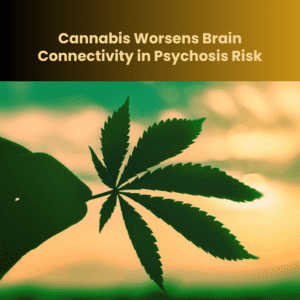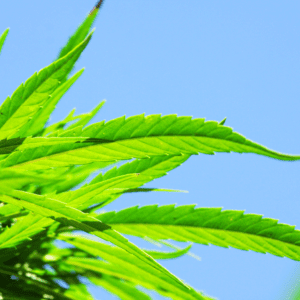THC and Sleep: New Study Uncovers Both Benefits and Risks

New Study Reveals THC’s Dual Effect on Sleep: Benefits for Some, Risks for Others
Cannabis use has long been associated with improved sleep for insomniacs, but recent research highlights a more complex relationship between THC and sleep quality. According to a study from the University of Southern California’s Keck School of Medicine, THC—a key psychoactive compound in cannabis—may benefit young adults struggling with anxiety or depression but could exacerbate sleep problems for those without mental health challenges. The study, published in Addiction, provides new insights into why THC may not offer the same sleep benefits for everyone, underscoring the role mental health plays in how cannabis impacts sleep.
How THC Affects Sleep in Young Adults: Insights from USC Research
For years, cannabis has been touted as a natural sleep aid, with anecdotal evidence and numerous reports supporting its sleep-enhancing effects. However, scientific findings have been mixed, with some studies suggesting that THC can worsen sleep quality. The new USC study, led by PhD student Claire Walsh, analyzed data from the Happiness and Health Study, a decade-long project involving 3,300 public high school students in Los Angeles. The study assessed the effects of cannabis on sleep quality, particularly focusing on young adults who use cannabis regularly.
The USC study found that, for participants with existing mental health conditions like anxiety or depression, cannabis use correlated with an improvement in sleep. These individuals saw a decrease in sleep problems by an average of -1.18 points on a 16-point sleep quality scale over six months. However, for those without anxiety or depression, THC use appeared to worsen sleep issues, with an average increase of 1.66 points in sleep problems over the same period.
Mental Health’s Role in Cannabis-Induced Sleep Changes
The study highlights an essential factor in understanding THC’s effects on sleep: mental health status. According to Walsh, there’s a prevalent belief that cannabis generally improves sleep, but the results show that individual factors, particularly mental health, significantly influence cannabis’s impact. Young adults with anxiety or depression often struggle with insomnia or restlessness, and cannabis may temporarily relieve these symptoms.
However, while THC may help alleviate some symptoms of anxiety or depression, it does not directly address the underlying causes of these mental health conditions. Instead, it could be “masking” symptoms rather than treating them, according to Walsh. This masking effect might explain why THC users with mental health challenges experience sleep improvements, as cannabis temporarily alleviates the issues that disrupt their sleep.
Frequency of Use and Sleep Impact: Comparing Frequent Users and Non-Users
The USC research team compared frequent cannabis users—those using cannabis at least 20 days per month—with participants who had never used it. The study did not account for the dosage or the method of consumption, which can influence THC’s effects. However, the correlation between frequency of use and sleep outcomes is clear: frequent use without mental health challenges was more likely to disrupt sleep patterns than to improve them.
Physician and Harvard Medical School instructor Dr. Peter Grinspoon, an expert in medical cannabis, suggests that individuals struggling with anxiety or depression may benefit more from THC for sleep because they are already grappling with sleep issues. “It’s easier to help someone who has a problem than someone who doesn’t,” Grinspoon explained. He added that people who use cannabis specifically to aid sleep often consume lower doses, as higher doses can be stimulating, counteracting THC’s potential sleep benefits.
Cannabis, the Endocannabinoid System, and Sleep Regulation
The endocannabinoid system (ECS), which interacts with cannabis compounds like THC, plays a crucial role in regulating sleep. Although researchers are still exploring how THC affects the ECS, it’s clear that the system mediates sleep processes. Grinspoon pointed out that, while the exact mechanism remains unknown, THC’s interaction with the ECS may explain its varied effects on sleep. This interaction appears to affect people differently, depending on factors such as mental health, dose, and frequency of use.
Grinspoon also commented on the limitations of cannabis research, which often relies on self-reported data rather than controlled lab studies. He notes that many studies on cannabis and sleep have been influenced by the “war on drugs” mentality, emphasizing potential harms over benefits. Researchers have also faced limitations studying cannabis in controlled environments due to its legal status, often relying on real-world data where users’ cannabis quality and composition vary significantly.
Recent Research and Promising Results on Cannabis and Sleep
Despite past limitations, recent studies are increasingly exploring cannabis’s effects on sleep with more precision. For instance, a study conducted earlier this year in the UK investigated the impact of vaporized cannabis on PTSD patients using a strain called Hindu Kush, which has a stable genetic background and a well-characterized profile. Participants reported improved sleep quality over six months, suggesting that targeted cannabis strains might offer therapeutic benefits for individuals with specific conditions.
However, while some cannabis strains and consumption methods show promise, risks still exist. Like many sleep aids, cannabis carries the potential for dependency. People who use cannabis regularly for sleep may experience withdrawal symptoms, including increased insomnia, upon discontinuation. Additionally, research indicates that cannabis use may reduce rapid eye movement (REM) sleep—a critical sleep stage associated with dreaming and cognitive processing.
The Double Standard: Cannabis Versus Traditional Sleep Medications
Dr. Grinspoon points out a double standard in the evaluation of cannabis as a sleep aid. While concerns about reduced REM sleep are frequently raised regarding cannabis use, other popular sleep medications—such as trazodone, Ambien, and Benadryl—also reduce REM sleep, yet these medications are widely accepted for short-term use. Although reduced REM sleep could have implications for cognitive and emotional processing, experts are not yet certain of the long-term effects of occasional or chronic REM reduction.
Future Directions for Cannabis and Sleep Research
The USC study underscores the need for continued research on cannabis and sleep, particularly in understanding how factors like dosage, strain, and frequency of use impact sleep quality for different populations. As cannabis gains legal acceptance in more areas, the opportunity for controlled research studies in lab environments may increase, allowing scientists to assess cannabis’s effects more accurately.
Understanding the precise relationship between cannabis and sleep could pave the way for targeted therapeutic options, helping those with specific sleep-related disorders while minimizing risks for the general population. Until then, individuals using cannabis as a sleep aid should be mindful of potential dependency and REM disruption and consult healthcare providers when considering long-term use.
Cannabis as a Complex Sleep Aid
The recent findings from USC’s Keck School of Medicine illustrate that cannabis, and specifically THC, is not a one-size-fits-all solution for sleep problems. For young adults with anxiety or depression, THC may offer some relief, while for those without pre-existing mental health conditions, it could lead to worsened sleep issues. The study underscores the importance of personal health factors, such as mental health, in determining how cannabis impacts sleep, adding nuance to the ongoing discussion about cannabis’s role as a sleep aid.
As the cannabis industry continues to evolve and as research grows more sophisticated, a more nuanced understanding of cannabis’s potential benefits—and limitations—will likely emerge. For now, those considering cannabis for sleep should approach it cautiously, understanding both its potential and its risks.











